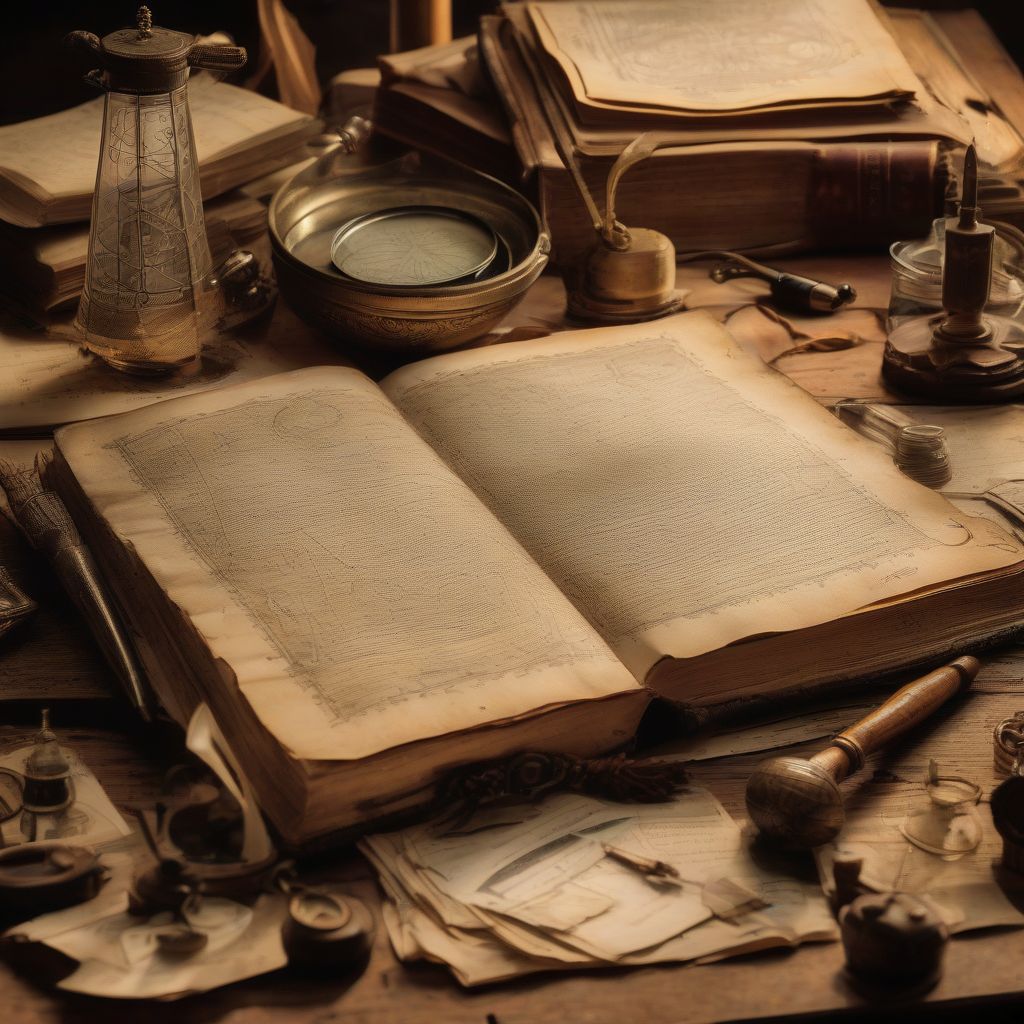Have you ever finished a classic novel and felt…puzzled? Like you understood the words, but not the meaning? You’re not alone. Unpacking the layers of symbolism, social commentary, and historical context in classic literature can be daunting. That’s where literary theory comes in. Think of it as a toolbox filled with different lenses through which to examine a text, revealing hidden depths and sparking new interpretations. This article will explore some of the best literary theories for analyzing classic texts, equipping you with the tools to unlock the rich tapestry of meaning woven within these timeless works.
Deconstructing Meaning: Post-Structuralism
Post-structuralism, with its emphasis on the instability of meaning, is a powerful tool for dissecting classic texts. Think of Jacques Derrida’s concept of “deconstruction.” It challenges the idea of a fixed, singular meaning, suggesting instead that meaning is constantly deferred and shaped by its context. Applying this to a classic like Mary Shelley’s Frankenstein, we can move beyond a simple reading of a monster story and explore the text’s anxieties about scientific hubris, the nature of creation, and the boundaries of humanity. Post-structuralism encourages us to question assumed truths and explore the inherent contradictions within the text itself.
Deconstructing Binary Oppositions
A key aspect of post-structuralism is its focus on deconstructing binary oppositions, such as good/evil, male/female, nature/culture. In Frankenstein, the creature is often seen as representing the “other,” challenging the binary of human/monster. By analyzing these oppositions, we can uncover the underlying power dynamics and ideological assumptions embedded within the text.
Unmasking Power: Marxist Literary Theory
Marxist literary theory examines how literature reflects and reinforces social and economic structures. It focuses on class struggles, power dynamics, and the material conditions that shape human experience. Analyzing Jane Austen’s Pride and Prejudice through a Marxist lens, for example, reveals how the novel explores the complexities of social mobility, the constraints of inheritance laws, and the pressures on women to marry for economic security. It allows us to understand the characters’ motivations and relationships within the context of their social and economic circumstances.
Ideology and the Text
Marxist theory also explores how ideology operates within texts. In Pride and Prejudice, the societal pressure on women to marry well can be seen as an ideological construct that reinforces the existing social order. By examining these ideologies, we gain a deeper understanding of the forces shaping the characters’ lives and the broader social context of the novel.
Exploring the Psyche: Psychoanalytic Theory
Drawing on the work of Sigmund Freud, psychoanalytic theory delves into the unconscious motivations of characters and the symbolic meaning of events. Applying this theory to Shakespeare’s Hamlet, we can explore Hamlet’s repressed Oedipal complex, his melancholia, and the symbolic significance of the ghost. Psychoanalytic criticism can illuminate the psychological depths of characters and offer insightful interpretations of seemingly inexplicable actions.
The Unconscious and Symbolism
Psychoanalytic theory emphasizes the importance of the unconscious and the role of symbolism in literature. In Hamlet, the ghost can be interpreted as a manifestation of Hamlet’s repressed guilt and desire for revenge. By analyzing these symbols, we gain a deeper understanding of the psychological landscape of the play.
Gender and Identity: Feminist Literary Theory
Feminist literary theory examines how literature represents gender roles, power dynamics, and the experiences of women. Analyzing Charlotte Brontë’s Jane Eyre through a feminist lens allows us to explore Jane’s struggle for autonomy, her defiance of patriarchal expectations, and the novel’s critique of social inequalities. Feminist theory illuminates the ways in which literature reinforces or challenges traditional gender roles and offers new perspectives on the experiences of female characters.
Challenging Patriarchy
Feminist theory often focuses on challenging patriarchal structures and exposing the ways in which women are marginalized in literature. In Jane Eyre, Jane’s journey towards self-discovery and independence can be seen as a challenge to the patriarchal norms of her time.
Context is Key: New Historicism
New Historicism emphasizes the importance of historical context in understanding literature. It argues that literary texts are not isolated artifacts but are products of their specific historical and cultural moment. Analyzing a work like Geoffrey Chaucer’s The Canterbury Tales through a New Historicist lens allows us to appreciate the social, political, and religious landscape of medieval England and how it shapes the stories and characters within the text. This approach helps us understand the text’s engagement with the concerns and anxieties of its time.
Cultural Materialism
Related to New Historicism, Cultural Materialism examines the material conditions of production and consumption of literature. It explores how literature interacts with other cultural forms and how it reflects the power structures of a particular society. Applying this to The Canterbury Tales allows us to understand how the text reflects the social hierarchy and economic realities of medieval England.
 Literary Theory Analysis
Literary Theory Analysis
Conclusion
From deconstructing meaning to uncovering historical context, literary theories provide invaluable tools for analyzing classic texts. They offer different perspectives, allowing us to delve beneath the surface and uncover the rich layers of meaning embedded within these timeless works. By applying these theories, we can gain a deeper appreciation for the complexity and enduring relevance of classic literature. Which theory resonates most with you? Share your thoughts and favorite examples in the comments below! Let’s continue the conversation and explore the fascinating world of literary analysis together. Don’t forget to share this article with fellow literature enthusiasts and embark on your own journey of literary discovery!



